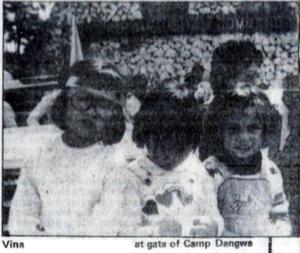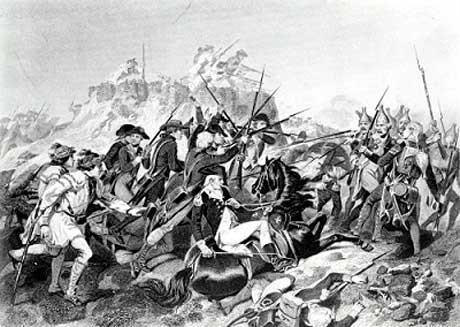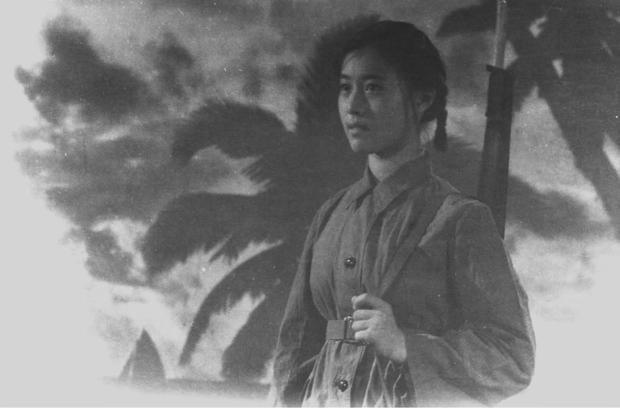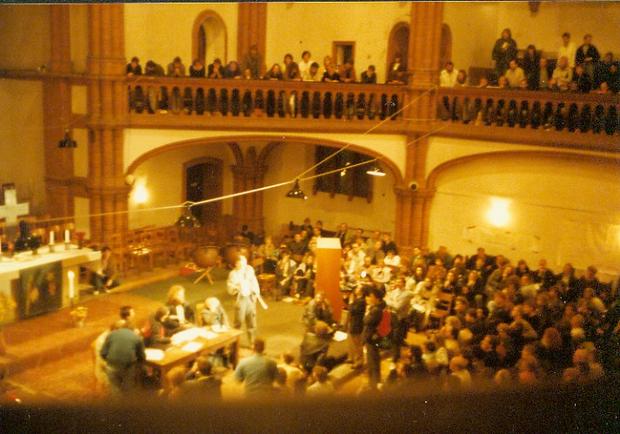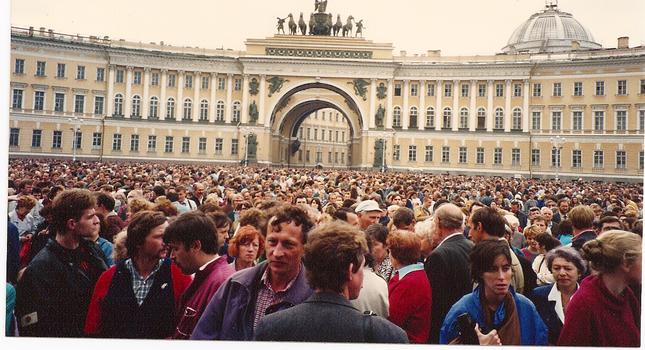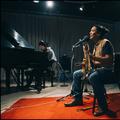Do you have a photo of your revolution? Is there an image that captures your movement, or an image of a revolutionary you?!
Linda Hoaglund
Brooklyn
Other/Almost
I recently completed a documentary film about the national uprising in Japan in 1960. The uprising was against the prime minister, Kishi, who was trying to extend the treaty keeping U.S. military bases in Japan. He was also, as we know now, from Tim Weiner's Legacy of Ashes, a WWII war criminal on the C.I.A. payroll. From May 19th to June 19th of 1960, millions of Japanese demonstrated everyday, joining in the streets to form the same kind of instant alliances that people in Egypt are finding. The history of this revolution is not taught in Japanese schools, which I attended as an American missionary's daughter. However, it was a watershed moment in postwar history. Because it failed, the U.S. still maintains over 90 military bases throughout Japan and their presence remains controversial.
In the case of Japan, the government saw the amazing energy of the people and decided to redirect that national energy into the economy. This is how the Japanese "economic miracle" was born. The corruption of the prime minister and his C.I.A. backed party was so thorough that it disillusioned many Japanese to the idea that Japan was a "real democracy." The fallout from their disillusionment can still be felt today as a deep cynicism towards the electoral process and politicians.
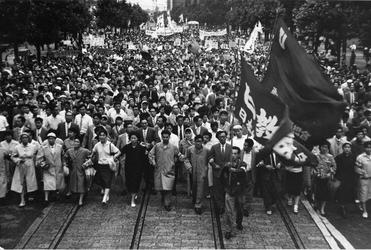
Poopak
Paramus, NJ
Iran 1979
I am an Iranian-American. I was 8 years old when Iran revolution happened. My parents would take my brother and I to the demonstrations on the Shahiyad square which was the center of the gatherings. We lived just a few blocks from the square. The footage that I see from Egypt these day reminds me of those days in Iran. It is as if it is Tehran, like a dejavue.
Keep religion out of the revolution. I have heard so many times in the past few days that Egyptian are different from Iranian. I remember that back in 1979 so many different political groups with different point of views were fighting for a democratic Iran but they ended up with a Islamic government which my generation still blames their parents for it.
Phil Henshaw
way uptown
Other/Almost
I'm a scientist who studies the revolutions in natural systems that nature uses to create everything, how a "calm before a storm" becomes a "viral event" that then "graduates" from one level of organization to another... “disrupting and remaking” its environmental relations. The Egyptian revolution is at the stage immediately following the "viral event" of breaking with the past, and now as a “new culture” needing to grope around for what to put together.
The study of similar cultural experiences, like the dramatic collapse of the Soviet Union, or the similar but "silent" collapse of the Crack Culture in NYC from 1990-95, I did a study of the latter that might be of interest: http://www.synapse9.com/cw/crimewave_nys2.htm. You don’t need to use a mathematical analysis, but just observe how a whole environment is changing around any kind of viral cultural or ecological process. Any viral event you see is likely some new form of culture breaking from its constraints. Studying the ones involving your own life gives you a real appreciation for how new cultures can emerge with explosive formation and collapse processes of different things at the same time. There are as many kinds of emergence as there are of ways for new forms of culture to mature.
Once new forms of culture emerge from their initial constraints the important things are to 1) try to grasp what the common elements essential to it are, to establish its sense of identity and 2) then be active in learning how to integrate with its environment by being openly exploratory, inquisitive and patient.
Never losing sight of the principles not yet stated, but that permeate the new culture is valuable. Because the reality is different from the perception, it’s important for perception to remain as open to and observant of the reality to not result in being confused as to what the new form is. For a "new born" culture that has just burst onto the scene, the first experience is being “helpless”. It really doesn't know anything at all, like a fragile seedling, or nubie in any field, or your first day on a new job or school. Changes of form all come with that kind of "first day experience" of graduating to a new world and feeling completely lost in it at first, because new systems that have just emerged haven’t discovered their connections yet.
If you've ever watched how ants behave when they first emerge from the nest, for example, they look more lost than any kind of living thing you've ever seen...! You normally think of ants as seeming to really know what they’re doing, but as newbies the difference is remarkably clear. Every new start then, benefits from not rushing that, because it is a learning process and not a program, and from nourishing the learning process in exploratory ways, to keep your identity and find the complementary roles that will knit things together.
The diagram shows the basic sequence, a viral process of emerging culture reaching a stage of coalescing on a "self-identity",(not a "self-awareness" except for thought processes, of course) and begun the process of maturing and integrating with its environment.
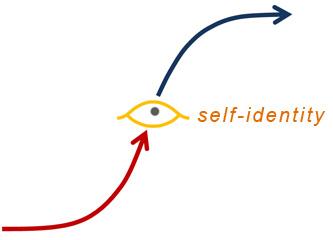
azar gordon
upper saddle river,nj
Iran 1979
I am originally from Iran, but had returned in 1973 with my American husband who had been hired for a project that lasted until the revolt of 1979.My husband was able to leave in May(he had an American passport). I left in July. I am an american citizen but Iran did not recognize that so I had to have an Iranian passport while living in Iran, and my passport was one issued by the monarchy so it was invalid.So had to get a new valid (islamic) passport before I could leave.
I taught piano to some university teachers(who were secular) and in our discussions I worried about Khomeini & the followers, her comment always was that the intellectuals needed him to get the masses onto the streets and then after getting rid of they shah they would shove him back to Ghom(the holy city). Khomeini had the last laugh. She & a whole lot of the intellectuals, students, & others were hung , arrested, tortured & etc. Every morning we saw the pictures of the hanged in the newspapers.Totally Gruesome!
My concern is that it revolution does not get hijacked by the Political Islam (moslem brotherhood )
John P.
Brooklyn
Other/Almost
The Civil Rights campaign in the Six Counties of Ireland, which began in 1968 and to which I have been a witness these past many years, is still an example of how mishandling by government and press had sparked a terrible low grade war that continued for more than thirty years.
Be careful that your ideals are not hijacked by the power brokers and manipulated to give voice to something other than what you seek. The first casualty of war is the truth. Amerisrael is the giant Goliath in your region are you slingshot is the truth. Use your weapon well.
Ana K
Fairfield, CT
Eastern Europe 1989
Hello Brian,
I am from Bulgaria originally. I was about 7 years old during the Revolution in Eastern Europe. My parents grew up under the communist regime, so did I for the first years of my life.
The Revolution itself was a celebration of Freedom, what came after was the actual challenge.
Unlike East Germany, Bulgaria had no strong supporter on the side. A country with an established system in place.
Instead of the desired Democracy what came was an Anarchy. There was no government in place and no laws whatsoever. The police or military were as helpless as the civilians.
Some form of mafia came from underground to the top of the country. Robberies on the streets were a part of the daily life. Women's necklaces were taken of their neck, earrings pulled of their years. Kids were left to walk home without shoes.
My brother had to give his lunch money to a group of older boys every day as he was going through the park for his basketball training.
My dad left for Germany in order to earn a better living for us, and my mom was left alone with three kids to deal with this situation.
There was no court system, simply nobody to stay behind you. Everyone was on their own and whoever had the physical power won. Just like wild animals in the jungle.
It took at least ten years for things to settle.
I believe the ideal for a Revolution overpowers the clear thinking. It is good to fight for your rights, but without a government the society goes wild. The revolution itself is really the easy part. The times after are the really hard ones.
So, if the Egyptian president changes the Constitution and prepares everything for a democratic elections in September the transition might go much smoother.
As much as the Egyptians want to see a change right away, I think they should be a little more patient because otherwise no good will come out of it.
Thank you Brian,
Best Regards, Ana
Radu Manolescu
Jersey City, NJ
Eastern Europe 1989
I was a student in my last year in Bucharest, Romania in 1989. I was in front of the government palace when the army stood down and let the protesters run over the building. I saw the president run away in a helicopter. He would be shot five says later.
Evolution is better than revolution. I knew it on the first day of the Romanian revolution and I know it now. If the government falls quickly, you find yourself the next day with new leaders whom no one knows and no one has vetted. From a (sufficiently) long struggle for freedom emerge national leaders who have proven their character in the fight. I hope that Egypt has a few months for the transition. Otherwise, chaos ensues and unscrupulous leaders benefit from it.
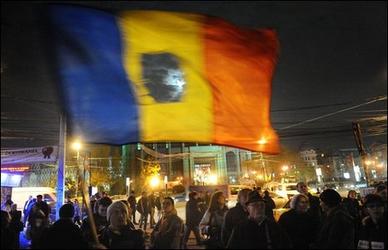
Other/Almost
I was living in Paris when the events known as May,1968 went down.
people in the streets – talking and arguing among themselves, congregating in groups ever enlarging, confronting the police, etc. – frighten the powers-that-be because that is where individuals of different social classes, occupations, and outlooks exchange political ideas and evolve. Protesters need to stay in the street;
students and young people must link up with the working class and find where their mutual interests lie: the French Communist Party blocked such unity, and that was the beginning of the end of the revolt. Such a link-up may be even more difficult in Egypt because so many youth are unemployed, but it is key to keeping the movement going and growing;
the French government stayed in power because Pres. De Gaulle had the support of the army and his hand on the gas pumps, and that assured him the allegiance of the French “silent majority” which came out in great numbers – some say 500,000 – .to support the government.
Mark Read
Brooklyn
Other/Almost
On November 30th, 1999 in Seattle Washington I stood shoulder to shoulder with thousands of fellow citizens to resist corporate globalization and the perversion of democracy by the World Trade Organization. We prevented the WTO from beginning its millenial round that day, and our creative non-violent resistance on the outside helped lead to the collapse of the talks on the inside, and, ultimately, to the diminishing of the WTO's power. Corporate Globalization, as led by the WTO, is a process by which the rich get richer at the expense of the poor and the environment. The movement against it, which began with the global south's resistance against the IMF in the 1980's and reached its peak in Seattle and afterward, peeled away the mystique of "free trade" and revealed the brutal truth of neoliberalism. This truth-telling has played a vitally important role in the uprisings now occurring in North Africa, as resistance to neoliberal austerity measures is at the heart of the the revolutions we are seeing there today. When I see the images of smoke in the air, of those people spontaneously organizing themselves in Tahir Square to tend to their defense and their well-being, I cannot help but think back to the medic teams, and the communications teams, and the affinity groups that were organized in the streets of Seattle, and other cities all around the world; that have been organized each and every time common people rise up against those that exploit and mistreat them. These revolutions and my revolution were the same struggle, the same revolution. A wealthy elite games the system to accrue great wealth and privilege to themselves, and they use the firepower of the state to protect and maintain that privilege. Eventually, people- the slumbering giant- wake up, and shake off their shackles.
Maintain solidarity and resist compromise. You will grow weary and divisions will arise. Take the long view and try to have patience.
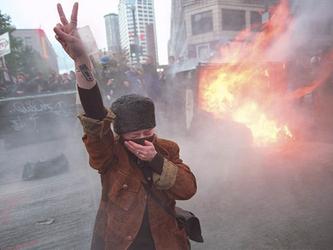
Caller to the Brian Lehrer Show
Stanford
Other/Almost
Lived through Hungarian revolution of 1956
We spontaneously formed a national guard to ensure that no unlawful activities would occur. Members were self appointed and put an arm band on to signify their participation and protected against violence and looting. The other thing we did was announce on the radio that farmers should send food into the city. We placed collection boxes on the street corners so those with money could donate for those who were in need.
Caller to the Brian Lehrer Show
Brooklyn
Cuba 1959
Was a child during the revolution there.
That revolution was a coalition of many views and groups. Castro represented just a small minority, but one with much charisma and media presence. As the Castro group seized more power, other groups dropped out of the consensus. In Egypt the educated protesters may still be too naive to understand the threat to power represented by the Muslim Brotherhood.
Caller to the Brian Lehrer Show
Hoboken
Other/Almost
Lived in Greece during the revolution of the late 60s.
The lesson is to take part in your society and make it work,don't just be in it for yourself. Take responsibility for yourself and then there will be some stability.
Caller to the Brian Lehrer Show
Brooklyn
Other/Almost
Was a child in Nepal when revolution happened there in 1990.
Two decades later there is still a power struggle, much corruption, and no stable political power. Egypt must be careful not to give absolute faith and authority to the new political parties but must remain independent and skeptical.
Caller to the Brian Lehrer Show
Queens
South Africa 1990
Lived in South Africa during the transistion.
The violence was much more horrendous than what was portrayed on TV. The lawyers were the heroes of the situation, who hammered out a constitution in the midst of the fighting. A focus on the law can help in a transition, provided the cultures are legalistic.
Caller to the Brian Lehrer Show
Manhattan
Other/Almost
Was living in Iran when the Shah was restored to power in 1953, also was involved with Haiti post death of Papa Doc.
Without a civil society it is impossible to go from a dictatorship to a democracy. Dictatorships and democracy have different rules, and asking for immediate transition would be like asking American football players to take off their helmets and pads and begin playing soccer -- they would kill each other because they do not understand the rules.
Bob Gordon
Upper Saddle River, NJ
Iran 1979
I worked in Iran from mid-73 until mid-79, thus I lived through the meat of the revolution.
My employer was under contract with the Iranian government.
My wife had been born in Iran, though we met and married in New Jersey before I went to work there. She was from "the 400 families" - an aristocracy of sorts, but no longer with any influence.
Her father had been Ambassador to the UN, amongst other posts, and was assassinated around 1950 under suspicion of disloyalty, then exonerated, posthumously.
I did not participate in the revolution, but was offered weapons from a raided armory by my neighbors in the early days, so that I might defend myself, if necessary. Then it was determined that as a foreigner I'd be better off without arms. My neighbors pledged to defend me and my family.
I personally knew a number of the people killed by the revolutionaries in the first few weeks.
As a not particularly astute political observer, and a professional IT worker, my observations are simply first-person witnessing, anecdotally.
Many disparate (and utterly incompatible) groups banded together "in the moment" to get the Shah out. What the intelligentsia said was "we're only using Khomeini to get rid of the Shah; then we'll get rid of the Khomeinists." The implication was that then will come a more participatory government.
So you had the business people (bazaaris), students, Communists, journalists, academicians, western-minded middle and upper class people - all in favor of the Shah's ouster.
My advice for others looking forward to removing oppressive regimes is that you can never underestimate the danger of hidden motives or the extent to which nefarious people will go to obtain their objective. Too often, that objective is substituting their own rule instead of the powers that be.
Akritas Smith
Brooklyn
Other/Almost
Lets not confuse a Coup de Etat - military dictatorship, with a revolution, like your listener said about Greece.
In 1967 there was a coup by idiots in the Greek military supported by the US, not a revolution.
Got that ? O.k.
The Arab world is protesting against regimes that have created hundrends of the ''super rich '' and millions of the ''super poor''.
That is the problem as I see it, not democratic freedome or democracy per se, and it is not a revolution.
Ramon Terrero
New York
Other/Almost
I was 13 years old in 1965 in Santo Domingo. 42,000 U.S. marines came in after the coup and there was a civil war.
The aim was to reinstate the democratically elected president Juan Bosch, who was overthrown in 1963 after just 7 months in power. The marines stayed all summer and there was a peace treaty and elections. From 1966 Joaquin Balaguer (one of Trujillo's main cronies)
came to power and was re-elected several times. Things did now improve for the people and the CIA infiltrated the revolutionary groups and killed many of the leaders. Balaguer said that
"incontrollable forces" were responsible for these events and that the government did not know who was behind the killings, disappearances, etc.
The lessons are that if you leave some of the people that were with the dictator (in this case Mubarak), not much will change. Also, the United States influence must be diminished, since the will always operate on behalf of the interest of the Military Industrial Complex, Pentagon and the reactionary forces in Israel. Let the Egyptian people find their way, let them have free elections and if the "wrong" group comes to power, as it happened in Gaza, do not make life impossible for them and continue to let the people find their way themselves.
If the U.S. is going to help, let the help be humanitarian and technical, not military and partially leaning protect Israel and the reactionary forces in the region. Peace for Israel, peace for Egypt and progress and peace for the whole Middle East without superpower intervention.
Haleh
NYC
Iran 1979
I was 13 in 1979, we left in 1984. It all started as a hopeful, democracy minded revolt which quickly turned into horror, many deaths, and chaos. Both my parents lost their jobs, they were both government employees who refused to work for the new Islamic regime. Money got very tight overnight. Everything they had was sold to live. My school became segregated, I missed my male school friends, I had a gun to my head to cover my hair, so I did. The educated left, my mother included, joined in, in the beginning, took to the streets, and soon withdrew.
The obvious mistake now in hind sight, was jumping into getting rid of the Shah before having any idea what we were going to get instead. And trusting blindly that everyone in it has the best interest of the people in mind, not their own power greed and personal ideologies. One must not trust any faction who from the beginning is more concerned with gaining power, than what's good for the country. I realize my mistrust of the Islamist faction in Egypt comes from my own experience, yet I cannot deny what I saw. The lesson I think, is go with a leader who has an education beyond theology, is literate, and interested in serving, not ruling. If you take the illiterate, hill billy type of any country, and let them take over, life will get worse for everyone.
